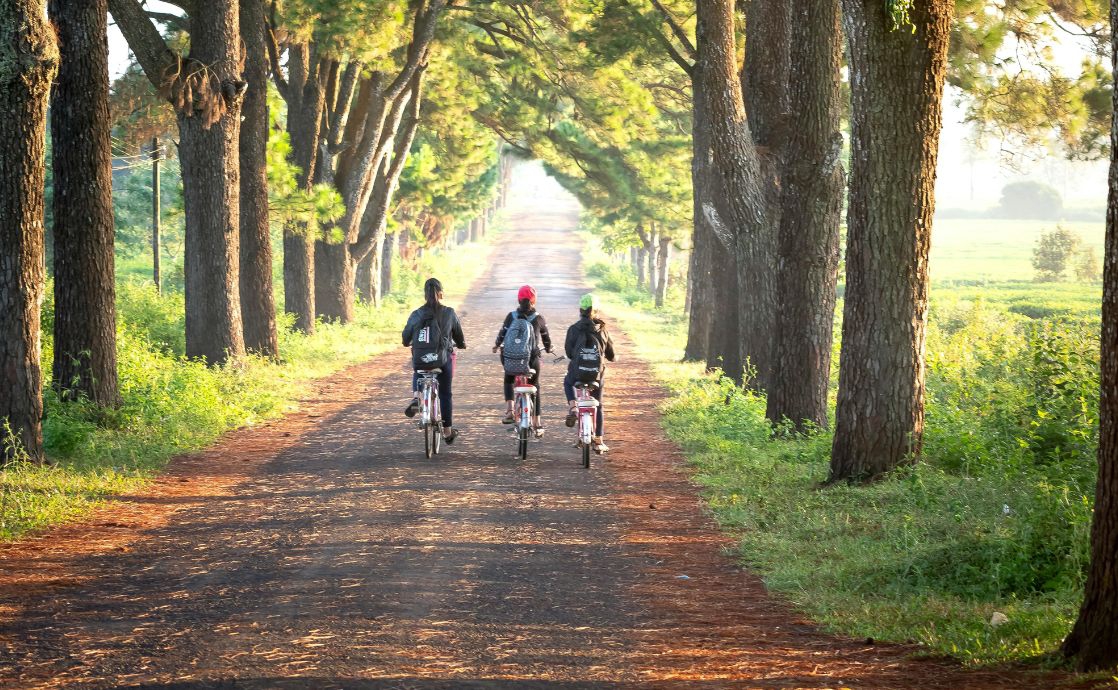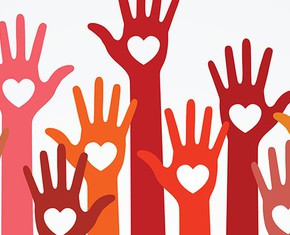The views expressed in our content reflect individual perspectives and do not represent the authoritative views of the Baha'i Faith.
“It’s fine, I’ll do it.” We’ve all heard those famous last words that lead to pretty much any and all physical, mental and emotional burnout.
Have you ever used that phrase, or said something similar? I sure have – I’ve used it countless times, and have also endured the repercussions.
Why? Well, relying on others has often led to disappointment, balls dropped, misunderstandings, and problems that could’ve been avoided had I handled it all in the first place. Sometimes, it’s just easier to do it myself … or is it?
All of this brings up the Baha’i idea of accompaniment, which means humbly learning together in the company of others:
It signals the significant strengthening of a culture in which learning is the mode of operation, a mode that fosters the informed participation of more and more people in a united effort to apply Baha’u’llah’s teachings to the construction of a divine civilization. – The Universal House of Justice, to the Baha’is of the World, April 2010.
The other night, talking with my sister about the concept of accompaniment, we discussed how challenging yet valuable it can be to build capacity in others and encourage universal participation.
But if every member of human society has the potential to contribute to the progress and unification of their communities, then why do I have such a hard time when it comes to delegating, relying on others and sharing the load?
Perhaps I’ve been let down a few too many times, or I don’t want to burden anyone, or I want things to be a certain way. The problem? This internal dialogue is just about me and my vision, and doesn’t account or leave any room for others to grow, feel included and build capacity through experience. How are we supposed to build a new world if only a select few of us do the work, and who’s to say that our way is the best way?
Throughout the world, Baha’is operate in smaller groups of communities, neighborhoods and cities known as clusters. These clusters work together to learn about how to build capacity in others and advance their understanding of this idea of accompaniment. Everyone, whether they’re Baha’is or not, is invited to take part in this mutual learning process. Each and every individual in these clusters has the potential to serve their communities and identify what is required for its progress, no matter their resources, skills or capacity:
Everyone has a share in this enterprise; the contribution of each serves to enrich the whole. The most dynamic clusters are those in which, irrespective of the resources the community possesses or the number of activities being undertaken, the friends appreciate that their task is to identify what is required for progress to occur – the nascent capacity that must be nurtured, the new skill that must be acquired, the initiators of a fledgling effort who must be accompanied, the space for reflection that must be cultivated, the collective endeavour that must be coordinated – and then find creative ways in which the necessary time and resources can be made available to achieve it. – The Universal House of Justice, to the Baha’is of the World, April, 2014.
Accompaniment requires walking along the path of service together, hand in hand, which is so very different from the mode of operation that our wider society currently engages in:
Such an approach offers a striking contrast to the spiritually bankrupt and moribund ways of an old social order that so often seeks to harness human energy through domination, through greed, through guilt or through manipulation. – The Universal House of Justice, to the Baha’is of the World, April, 2010.
Operating in the spirit of accompaniment asks a lot of everyone. It requires us to deepen our own understanding of the intrinsic value of unity, to love our teammates unconditionally, and to operate in a transparent way that welcomes the experiences, ideas and abilities of others. Accompaniment also asks us to be detached from outcomes and focus on a process that fosters the informed participation of more and more people.
Real accompaniment manifests itself in true, deep, friendships. Similar to how a true friend would love us for our own sake, we learn to love the same way in return, not just for the personal good that may come out of it. The Baha’i teachings say this kind of true friendship, necessary for accompaniment, develops from a knowledge of God:
The love which exists between the hearts of believers is prompted by the ideal of the unity of spirits. This love is attained through the knowledge of God, so that men see the Divine Love reflected in the heart. Each sees in the other the Beauty of God reflected in the soul, and finding this point of similarity, they are attracted to one another in love. This love will make all men the waves of one sea, this love will make them all the stars of one heaven and the fruits of one tree. This love will bring the realization of true accord, the foundation of real unity. – Abdu’l-Baha, Paris Talks, p. 181.
So the next time you make plans for an upcoming community gathering, group service project, or simply organizing a family outing or event, try to avoid the phrase “it’s fine, I’ll do it” and remember that you are not alone. The group of people around you has innate potential and skills of their own, and you have the bounty of accompanying them on their path of service.
Remember that everyone has a share in building world unity, and to do so we must nurture the nascent capacity in others. Operating in a mode of learning fosters informed, universal participation. Remember to see the beauty of God in each and every soul, and that love and true friendship are necessary for accompaniment that will ultimately lead to the building of a new world. Remember to constantly call to mind the attributes of humility and detachment, and always try to make space and give voice to the potential of others. Our future depends on it! Because just like seeds, everyone has the potential to bear fruit, provide shade and nutrients, and support the growth of others:
Lift up your hearts above the present and look with eyes of faith into the future! Today the seed is sown, the grain falls upon the earth, but behold the day will come when it shall rise a glorious tree and the branches thereof shall be laden with fruit. Rejoice and be glad that this day has dawned, try to realize its power, for it is indeed wonderful! God has crowned you with honour and in your hearts has He set a radiant star; verily the light thereof shall brighten the whole world! – Abdu’l-Baha, Paris Talks, p. 68.
You May Also Like
Comments

















In a way it has always been like this. Historian Arnold Toynbee said that every civilization is created by a creative minority. Creative minorities (today’s leading edge of human evolution) find solutions to the challenges a civilization faces, while the great mass follow these solutions by imitation (mimesis).